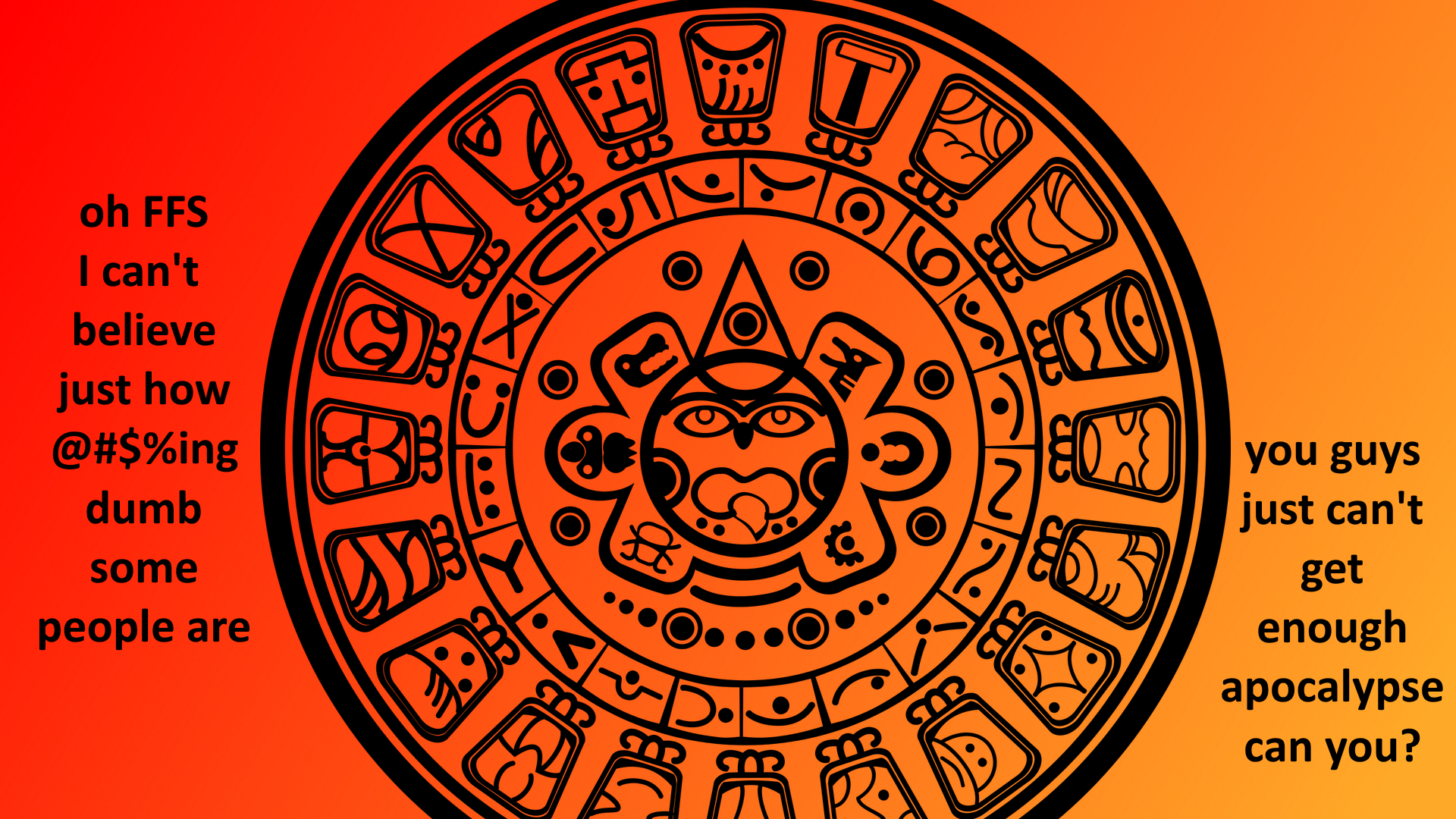Oh Great, Another End Of The World!

It makes me sad when people are constantly holding out hope for something — to the point their personality starts to revolve around it — only to be repeatedly disappointed. There’s one subset of these people I don’t have sympathy for: people cheering for the end of the world.
You know the kind of thing I’m talking about. Some folks are so hungry for an Apocalypse that they’ll cling on to any sign that The End Is Near. Case in point: remember a few months ago when the star Betelgeuse was about to go supernova… until it didn’t? Personally, I was disappointed (what a show!). But some people, upon hearing this news, reflexively reached for The Book of Revelations or some Hopi prophesy for “proof” that it was Game Over for all of us.
…But then Betelgeuse got better.
Another one of my favorites: ever heard of KIC 9832227? It is what’s referred to as a “contact binary”: two stars so close to each that they are essentially rubbing up against each other. In 2022 the two are expected to finally crash into each other, producing a supernova. It’s in Ophiuchus. Rabbi Yosef Berger has announced that this nova will be the fulfillment of a prophesy in the Book Of Numbers, and will signal the arrival of The Messiah.
…Except that it turns out that the “discovery” of this pending “kablooey” was based entirely on a transcription error on one set of data.
And, more recently, there was the harbinger of doom called Comet ATLAS, which I’m pleased to report was as big a let-down as I predicted.
This week? It’s December 21, 2012 all over again!
That’s right: the end of the world presaged by the end of the Mayan Calendar was off a bit. A news story that started with a series of tweets by An Actual Scientist (Paolo Tagaloguin, University of Tennessee, Department of Plant Sciences) has recently been making the rounds, lifting the hearts of End Times Cheerleaders everywhere.
Sayeth the scientist:
“Following the Julian Calendar, we are technically in 2012… The number of days lost in a year due to the shift into Gregorian Calendar is 11 days… For 268 years using the Gregorian Calendar (1752-2020) times 11 days = 2,948 days. 2,948 days / 365 days (per year) = 8 years.”
…therefore, the Mayan Calendar actually ends this week. Or maybe it’s really December 21, 2012 this week. Or maybe… just maybe… it’s a load of crap and we’ll all still be here next week. That’s the outcome I’m betting on personally. And let that be a lesson to that small subset of astrologers who get off on scaring people with fairy tales about the End Of The World.

Facebook Comments